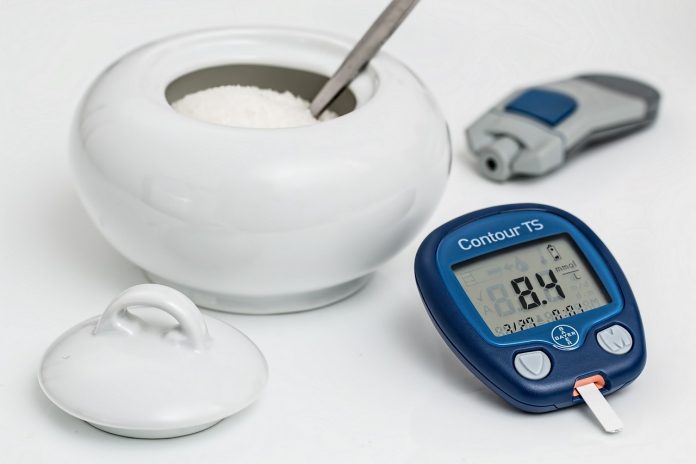
In a new study, researchers found drugs that were developed to treat Alzheimer’s Disease could be re-purposed to prevent—or even reverse—the damage done to the blood vessels in people who are obese or suffer from type 2 diabetes.
They discovered a key mechanism that triggers changes in the blood vessels, which can eventually lead to cardiovascular disease.
The research was conducted by scientists at the University of Leeds and the University of Dundee.
People suffering from a range of conditions called metabolic syndrome—which includes type 2 diabetes, high blood pressure, high cholesterol, and obesity—have a stiffening of their blood vessels that puts them at increased risk of a heart attack or stroke.
It starts when people begin to overproduce an enzyme called BACE1 which in turn creates a protein called beta-amyloid.
Raised levels of beta-amyloid are associated with damage to the surface lining of blood vessels, the endothelium.
This disrupts the normal functioning of the blood vessels leading to high blood pressure and atherosclerosis, the build-up of plaque along the walls of the blood vessels.
In the study, the team looked at the effect of an experimental compound called M-3, which stops the actions of BACE1.
In studies on mice that were obese or had diabetes, it was shown not only to halt the disease in the blood vessels—but to reverse it.
The team says the most exciting thing is that there are drugs that can target the BACE1 enzyme.
BACE1 has previously caught the attention of the pharmaceutical industry because of its role in the development of another major illness, Alzheimer’s Disease.
BACE1 is directly linked with the development of beta-amyloid plaques found in the brains of people who died with the condition.
Drug companies have started developing BACE1 inhibitors—so far, they have been ineffective in tackling Alzheimer’s.
The study demonstrates that an early abnormal biological process, which is strongly linked to Alzheimer’s disease, may be responsible for vascular disease and hypertension in people with obesity and diabetes.
These findings suggest the exciting possibility whereby existing drugs that have unfortunately shown no benefit in clinical trials for Alzheimer’s Disease, may instead be used to treat vascular disease in this group of people.
One author of the study is Dr. Paul Meakin, University Academic Fellow in the Leeds Institute of Cardiovascular and Metabolic Medicine.
The study is published in the Journal of Clinical Investigation.
Copyright © 2020 Knowridge Science Report. All rights reserved.



